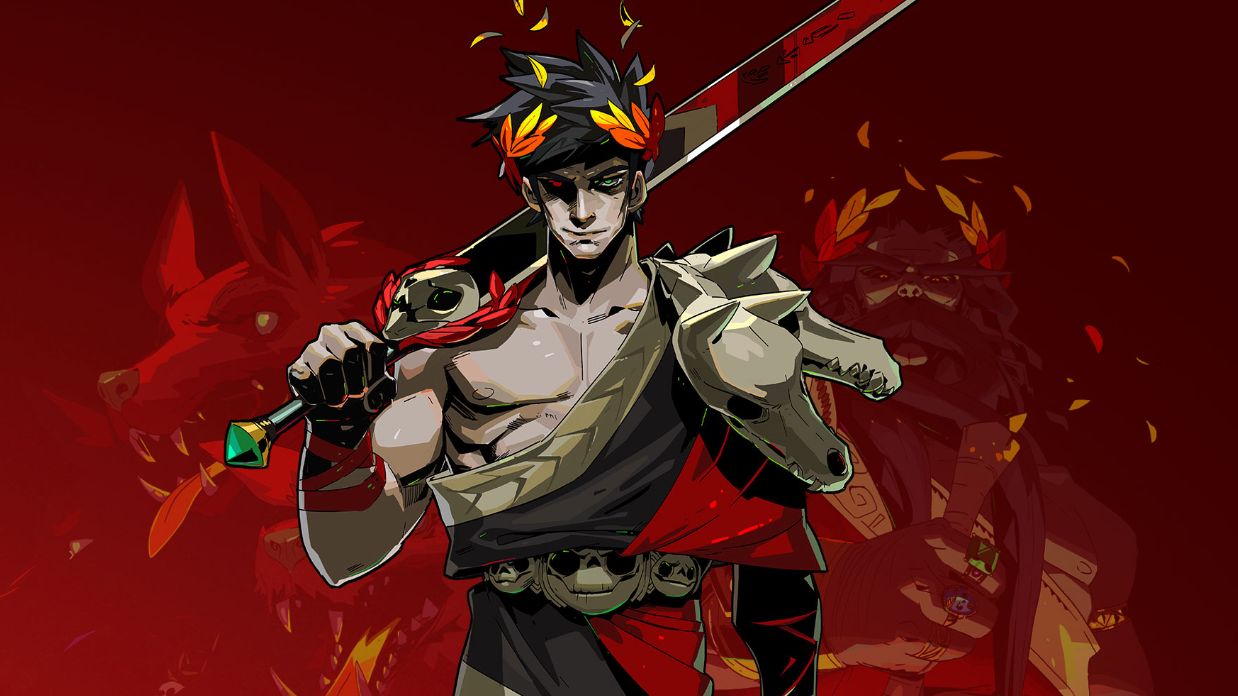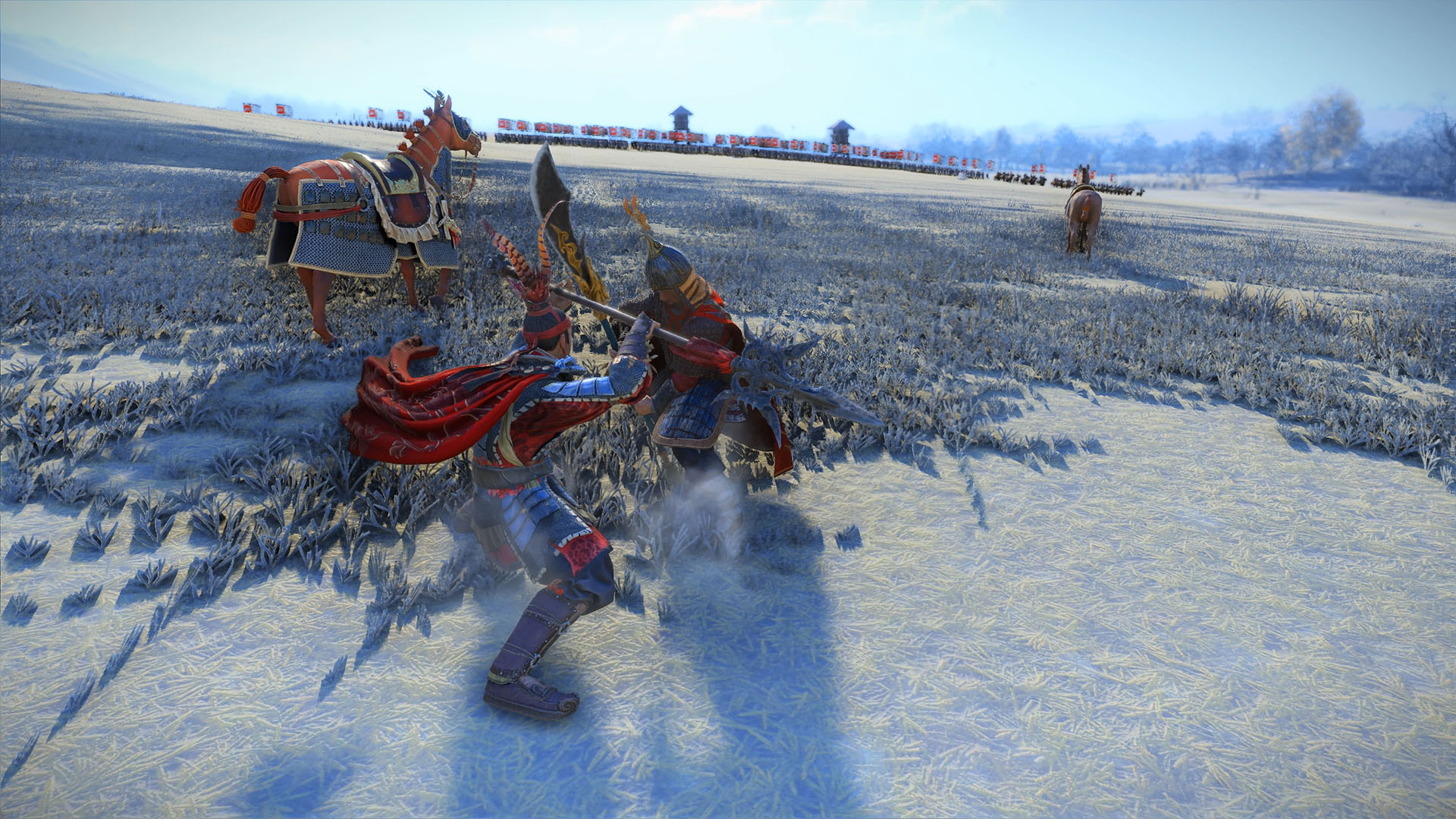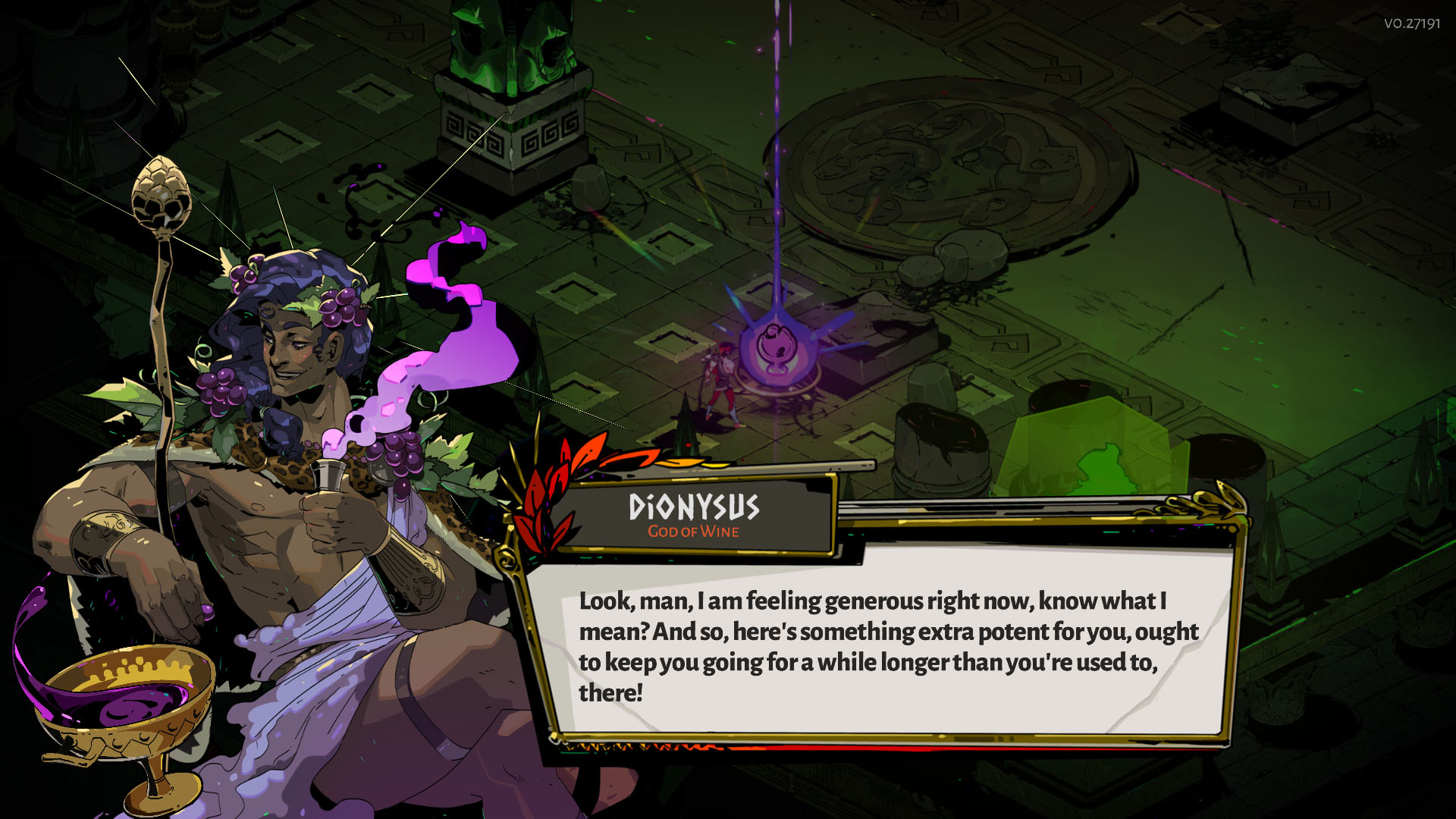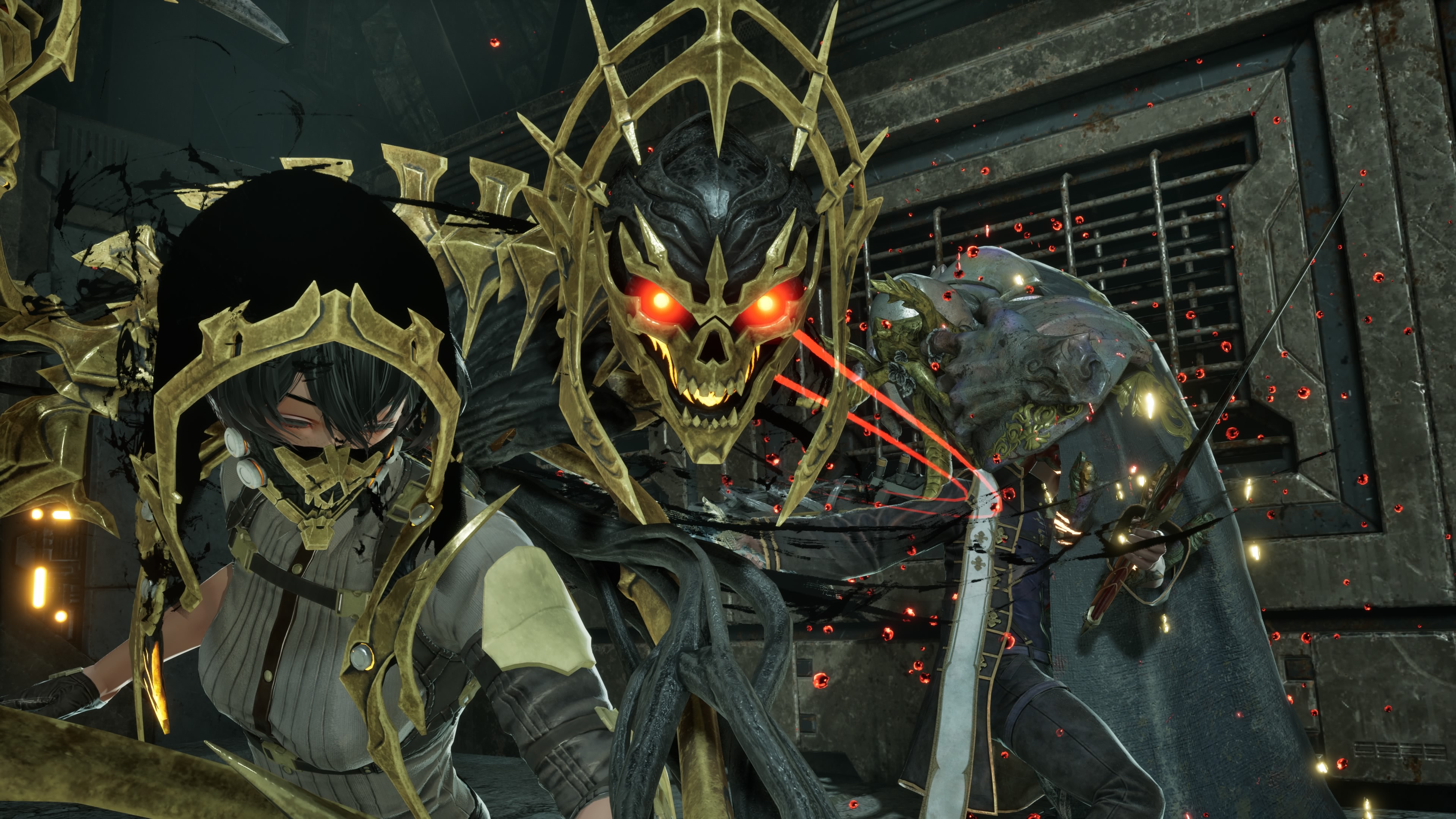PC Gamer plays: Total War: Three Kingdoms, Legends of Runeterra, Gears 5, and Hades
Let's take a trip to hell.

Every month in PC Gamer magazine, in a section called Now Playing, our writers report on the games that have been occupying their time recently. Today we rewrite history in Three Kingdoms, get hooked on Runeterra, battle the denizens of the underworld in Hades, and enjoy the dads and chainsaws of Gears 5.
Rewriting Lu Bu’s demise in Total War: Three Kingdoms’ latest DLC—Steven Messner
Rewriting Lu Bu’s real-life demise has been one of my most satisfying campaigns in Total War: Three Kingdoms. In real life (at least as depicted in the historical-inspired fiction of Romance of the Three Kingdoms), Lu Bu was a legendary warrior of unparalleled ability who slaughtered any champion who dared cross spears with him. But he was also extremely hot-tempered, erratic, and an incapable leader.
Despite being an iconic figure from that era of Chinese history, his story is painfully short: he betrayed his adopted father, the tyrant Dong Zhou, and tried to carve out his own piece of the fractured Han Dynasty, but couldn’t stop betraying everyone who was nice to him. In the end, Lu Bu’s own soldiers turned on him, and he was captured by Cao Cao and sentenced to death.
I just couldn’t escape the circumstances that led to his real-life downfall.
My version, however, is a little different. In A World Betrayed, Total War: Three Kingdom’s new DLC, Lu Bu is one of two new factions. His campaign mechanics reflect his haughty temperament perfectly. Each time Lu Bu defeats an enemy, he builds Momentum that confers various bonuses, like improving his army’s movement range, increasing satisfaction among his court, and making troops fight harder. But Lu Bu is a terrible leader and suffers large penalties to most forms of governance, giving him less administrator positions, more corruption, and a steep increase in building cost. His starting position is also incredibly weak, owning just a single minor settlement that is besieged by Cao Cao’s forces. You can join up with Liu Bei to end that war quickly, but that still leaves you with little room to expand.
It’s for that reason that I restarted my Lu Bu campaign five times. Try as I might, I just couldn’t escape the circumstances that led to his real-life downfall. I kept making bad decisions that either left me cornered against an invasion or pissing off my generals so much that they all betrayed me.
But on my fifth attempt, I finally managed to find a balance—if only because I chose to buddy up to the infinitely stronger (and more stable) Liu Bei and stay in his shadow just long enough to get a decent foothold. Then came war. Nearly 20 endless years of it. With Liu Bei as my close ally, I struck out against every other warlord around me, devouring them whole. As my Momentum maxed out, it was exhilarating to tear so recklessly across Northern China.
Lu Bu feels like an arrow notched on a fraying bow string. Pull too far and it can break, but if you can draw him back the right amount, his Momentum will carry him far.
Keep up to date with the most important stories and the best deals, as picked by the PC Gamer team.
Three Kingdoms is all about writing this iconic chapter of Chinese history, but putting this killing machine on the throne is one of my more satisfying achievements. Lu Bu would definitely be an awful emperor, but it’s fun playing out an alternate history where his skill in combat carried him to the top.
Legends of Runeterra is all killer, no filler—Robin Valentine
Yep, for the second month in a row I’ve got Riot’s new card game on the brain. It’s safe to say I’ve fallen hard for Legends of Runeterra—and one of the biggest reasons is its rejection of filler.
You’ll find that most card games are full of filler. Dull, generic creatures defined only by whether they’re a 2/3 or a 3/2, or cards that will only be played because they’re more common than their objectively better alternatives, or ludicrously niche minions and spells that don’t actually fit into anyone’s decks.
Whether they’re there to pad out packs with fluff to make more desirable cards rarer, or to blandly fill awkward gaps in the game’s design, or just ‘for fun’, they’re the cards that clog up your collection while you’re waiting for something much better to come your way.
Legends of Runeterra very consciously does away with all that. Of course not all cards are equally competitive, but every single one feels like it has a place and a role. They all have a defining ability, keyword, quality, or synergy with something else, something to get your brain firing with new deck ideas.
The meta feels varied and interesting, full of different ideas and creative win conditions.
In-game, every one feel impactful. When they hit the board, something happens, and another step of your strategy clicks into place. For example, the Eager Apprentice isn’t just a low cost, weak minion—he charges up your spell mana, setting you up for a dramatic play next turn. Bull Elnuk isn’t just a beefy mid-game drop, it’s ammo in the machine- gun barrage that is playing Troop of Elnuks and summoning half the furry beasts in your deck.
Many fundamentally change the nature of the board once they’re in play, from freezing your opponent’s top minion each turn, to replacing your entire hand with new cards. It’s the ‘if everything’s overpowered, then nothing is’ approach to balance, and so far it’s working. The meta feels varied and interesting, full of different ideas and creative win conditions, and almost every game is dramatic and exciting.
It’s early days yet, admittedly—the card pool is still relatively small, and yet to be diluted with new expansions. But so far I’m finding Riot’s approach incredibly refreshing compared to any TCG I’ve played before. If they can keep it up, they’ll have me knocking out games over my morning cereal for years to come.
In Gears 5, the series feels better than ever—Tom Senior
Was Gears of War always this good? I remember grey games about grey men shooting grey aliens in grey ruins. They were games about grunting machismo and, for some reason, bad dads. The trend continues in Gears 5 with father and son in the same squad. But now there’s a wry self-awareness that defuses the oppressive ‘oorah’ war is hell (but good) mentality of the first few games.
Gears of War basically invented the cover shooter as we know it, but Is it really fun to slam your back against a wall and fire sporadically at distant enemies? I think it is, in Gears 5 at least, thanks to the series’ terrific armoury. The game’s most basic gun is an assault rifle with a chainsaw attached. Warhammer 40,000 aficionados out there know this is exactly what all guns should be. If an enemy gets too close you press ‘R’ to rev the chainsaw up and carve your victim into bouncy chunks. It’s gloriously excessive, slapstick violence, and it just doesn’t get old.
The shotgun in Gears 5 is magnificent too. There’s a puzzle solving element to moving between chunks of cover, swiftly crouch- walking around corners to get a point blank flanking blast with the shotgun. And then you’re rewarded with a spectacular instant kill.
It’s gloriously excessive, slapstick violence, and it just doesn’t get old.
If you play passively, the enemies feel like bullet sponges that take a little too long to go down, but the game nudges you towards aggressive moves. It seems counterintuitive in a game that’s essentially about hiding, but if you manoeuvre yourself into the right position, it’s a highly lethal shooter. Multiplayer fans have known this since the first few games, but as I battle through Gears 5’s colourful and often beautiful locations, I feel like I’m starting to understand what the game is all about, and why it has endured for so long.
There is a strong rhythm to each mission. There’s a slow talky bit, then something spectacular to look at, then a few rooms of combat, and then you throw a grenade into a sinkhole to stop enemies spawning. It’s simple, but it works. And you get to enjoy a soap opera at the same time. Marcus Fenix, the series’ main dad, watches over his son JD as they bond over chainsawing aliens. Like all dads in Gears games, he is disapproving of your approach to certain missions, but I have faith that these two can keep it together in the face of yet another alien invasion, despite some bickering.
It’s a generous package. The whole campaign is playable in co-op, and there’s a horde mode and solid multiplayer to enjoy. The game feels as big and chunky as one of those big grey marines. Solid, dependable, and a worthwhile trip to gaming’s recent history. Also the Hammer of Dawn is one of the best space lasers around, so it’s worth a play just for that.
Feeling loved while trying to escape from Hades—Luke Kemp
Given everything that’s happening in the world right now, I’ve been using games to dive into happier and more welcoming places, which is why I’ve been taking regular trips to Hell. There’s only really one objective here: escape from the land of the dead. Considering the fact that my dad is the lord of the underworld (sadly, not in real life), this is basically a game about moving out of your parent’s house. A hell of a good one (do you see what I did there?).
Ordinarily, I don’t enjoy Souls-likes and roguelikes. Games that go out of their way to make life as difficult as possible? Games that make the prospect of bettering yourself seem like an all-but-insurmountable task? Games that say “all those other games don’t understand you, if you want to become a truly better player, you need to stick with me, your skills are crap but I can teach you how to rise to greatness”? That’s negging, and I don’t respond well to it.
Hades is not a death plummet, it’s a bungee jump. It’s wearing roguelike trousers—I die again and again, starting from the very beginning each time, slowly becoming more powerful through persistent currency and items—but those trousers are nestled inside a safety harness of love. Dad mocks and jeers each time I’m sent painfully back to the familial quarters, but the gods of Olympus are on hand each and every run to offer me temporary perks and bonuses.
I don’t even swear violently when I die; and for me, that is highly unusual.
Hey, have this to deal more damage! Take this to receive less damage! This will give your dash offensive power! This gives enemies a chance to drop health! And many, many, many more. This almost endless parade of boons plays a large part in ensuring that each and every run feels truly unique, something most roguelikes struggle to achieve. I don’t even swear violently when I die; and for me, that is highly unusual.
In fact, I adored Hades before I even started playing it. In the menus, I found that there’s a god mode to make me close to unkillable, which they advise players to use if they want to concentrate on the story, or “for any reason”. Isn’t that wonderful? I haven’t turned god mode on yet, but I love the fact that it’s an option, and that the developer makes it clear that it won’t think any less of me for doing so.
Much as I’d like to say “I can’t believe it’s an Early Access game!” due to the reams of content, luscious art, great acting, and so on, I can in fact easily believe it. Partly because Hades shouts at me about this on the title screen, and partly because of those regularly scheduled, superb updates. Yet another way the game shows me that it loves me. See, developers? It is possible to challenge the player while still being kind to them. Drop the negging, and let’s see more healthy relationships like this.
With over 7 years of experience with in-depth feature reporting, Steven's mission is to chronicle the fascinating ways that games intersect our lives. Whether it's colossal in-game wars in an MMO, or long-haul truckers who turn to games to protect them from the loneliness of the open road, Steven tries to unearth PC gaming's greatest untold stories. His love of PC gaming started extremely early. Without money to spend, he spent an entire day watching the progress bar on a 25mb download of the Heroes of Might and Magic 2 demo that he then played for at least a hundred hours. It was a good demo.






